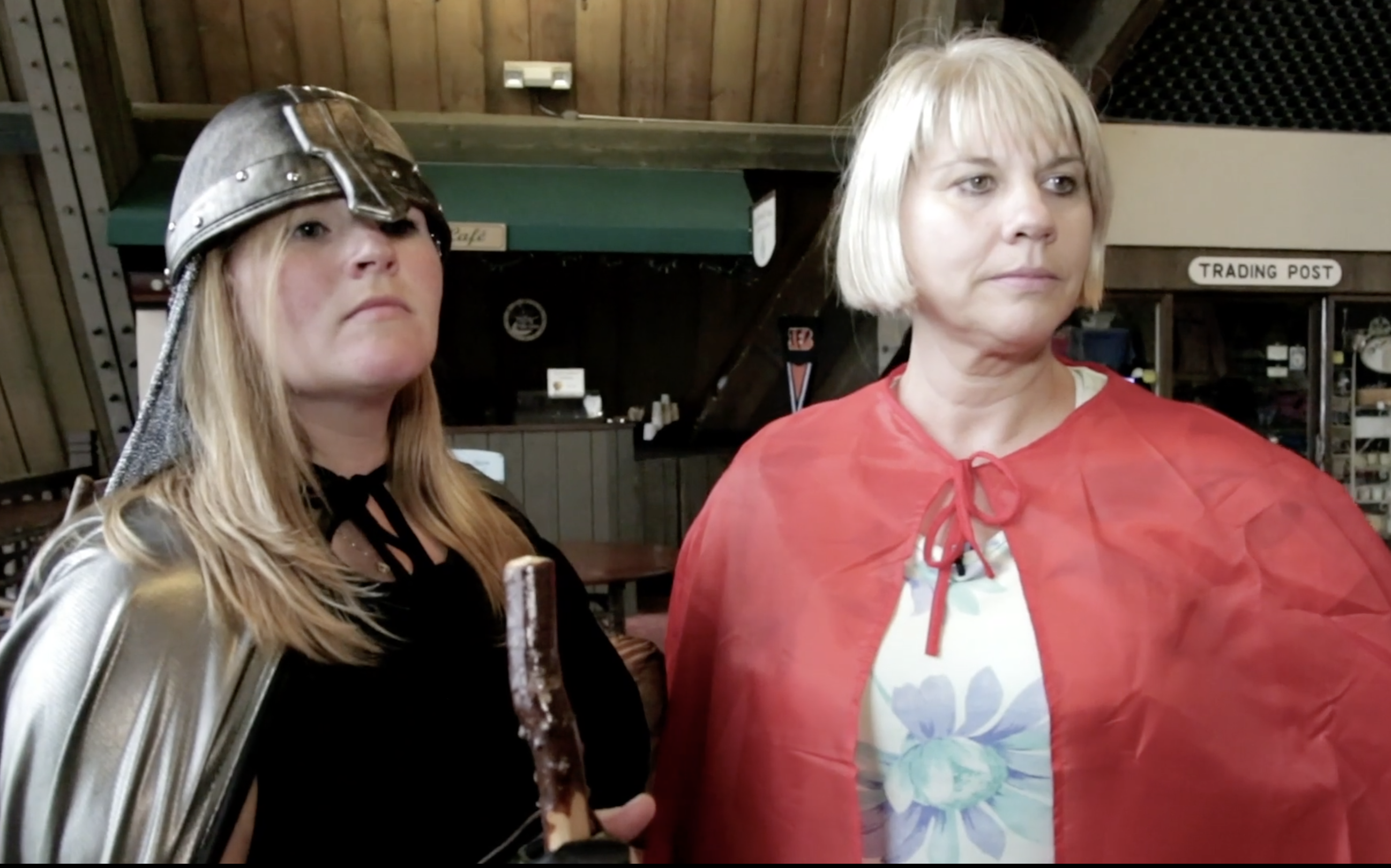It’s “the most terrifying debilitating creature known to synagogues, churches, and institutions everywhere,” “strikes by taking a human form by way of possession,” and “can come for any of us at any time.” What is it? It’s The Way We’ve Always Done It Demon, of course. Seven years ago, Temple Sholom of Cincinnati, led by Rabbi Miriam Terlinchamp, created a series of videos exploring the challenges of innovation. In this video, the synagogue board goes on a retreat and The Way We’ve Always Done It Demon strikes, shooting down every new idea.
You may have seen the Demon, too – at a board meeting when someone proposed free membership for young adults, in a committee when someone suggested we abandon the annual gala; after services when you tried a new tune. I saw it once when I ordered dreidels for the first ever young adult Chanukah party; my executive director said, “Why do adults need dreidels? We’ve never ordered dreidels for adults…”
There’s an idea that the past is always better, the “good old days.” Even in the Jewish tradition, we have a teaching that wisdom decreases in every generation – yeridat ha-dorot, which shows up in rabbinic literature as respecting the rulings of previous generations. In some ways, this makes good sense: If scholars uprooted every past ruling, there would be no precedent, and the legal system would become chaos. And yet this week’s Torah portion includes a case for which the rabbis of the Talmud did just that.
We learn this week about a case calling for capital punishment against someone who has not yet committed a crime: the case of the stubborn and rebellious son. The parents can take him to the elders and say,
“This son of ours is wayward and rebellious; he does not obey us; [he is] a glutton and a guzzler. And all the men of his city shall pelt him to death with stones, and he shall die. So shall you clear out the evil from among you, and all Israel will listen and fear”
If that seems excessive to you, perhaps it also did to the rabbis of the Talmud. They discuss the case at length in Tractate Sanhedrin. They determine what would qualify someone to be a stubborn and rebellious son: the son’s age (within a 3-month window of the onset of puberty); how much wine and meat and what types he must have eaten (raw, Italian); in what circumstances he must have stolen the meat and wine and consumed it; how the parents have to look and speak identically for it to count. They effectively legislate the case out of existence. In fact, at the end of this long list of distinctions, the Talmud asserts, “There has never been a stubborn and rebellious son, and there never will be one in the future” (Sanhedrin 71:a).
This is no exercise in futility, though. Rather, the rabbis of the Talmud radically assert the current generation’s prerogative to uproot past rulings – even one from the Torah law itself, which is very rarely done! They are essentially saying, “We don’t think this Torah law should be perpetuated. Although it’s right there on the page, we are going to re-understand it so it no longer applies.” In this case, they are not beholden to the way they’ve always done it, and they utilize their creativity to reset the legal expectations for the future.
The challenge we always face, whether as part of an ancient religion or just as members of a society, is to balance our appreciation of how we used to do things with our curiosity and openness to the future. If the rabbis of the Talmud can uproot a Torah law, perhaps we can order dreidels for the young adult Chanukah party. At the end of the video, the congregants from Temple Sholom give advice to the Demon to vanquish it. As they tell it, “Change is painful, but it’s necessary.” “Don’t let the past keep you from moving forward.” See if you can’t recognize yourself in the tale. Which role do you usually play?

Rabbi Julia Appel is Clal’s Senior Director of Innovation, helping Jewish professionals and lay leaders revitalize their communities by serving their people better. She is passionate about creating Jewish community that meets the challenges of the 21st century – in which Jewish identity is a choice, not an obligation. Her writing has been featured in such publications as The Forward, The Globe and Mail, and The Canadian Jewish News, among others.

